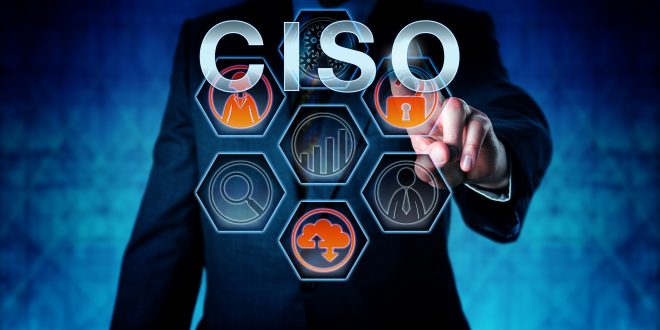vCISO: a Great Solution for Small Organizations
Small organizations often lack a dedicated security leader to manage their security and compliance needs. Learn how vCISOs can help. Raised cybercrime and toughened compliance requirements prompt organizations to look for sophisticated information security leadership. The most rational and commonly accepted solution is hiring a Chief Information Security Officer (CISO) to manage organizations’ information security programs. Yet, an experienced CISO is a luxury, and not all businesses can afford it. While large organizations and small/medium-sized businesses (SMBs) face similar risks, the latter rarely have the financial capacity to hire and retain high-skilled security experts. At the same time, more than 43% of all security data breaches targeted small businesses, as U.S. Small Business Administration reports. To decrease the financial burden and ensure experienced cybersecurity leadership, businesses can hire a virtual CISO (vCISO). This article will break down the nuances of vCISO and explain why SMBs should consider it.
What is the vCISO?
Most large businesses hire a full-time CISO who is responsible and accountable for securing data and technical assets. The Chief Information Security Officers (CISOs) are charged with a wide range of duties such as creating an information security strategy and developing the organization’s security programs, conducting security risk assessments, implementing controls necessary to mitigate identified risks across the enterprise, ensuring the organization’s compliance with regulatory and contractual requirements. However, the abovementioned duties may be better fulfilled by outside experts - vCISOs. The Virtual Chief Information Security Officer (vCISO) which is often referred to as fractional CISO or CISO-as-a-Service, is a consulting service that provides part-time or interim help in managing information security and compliance programs to businesses that lack staff with the expertise to take on such responsibilities. vCISO services work similarly to cloud services. Hence, as cloud providers give organizations access to technologies that would be too costly to build in-house, vCISOs provide high-quality leadership and guidance, which may be difficult to achieve from within. These solutions work well and show their effectiveness in practice.
What does the vCISO do?
vCISOs must be as collaborative with their client organization as possible. They should provide the best service and keep businesses updated with the latest threats and vulnerabilities, various compliance requirements, and ways to tackle them. vCISO’s responsibilities include providing strategic leadership to guide SMBs’ cybersecurity and compliance efforts. To achieve this, vCISO combines security, risk management, and compliance duties and provides businesses with the following:
- Aligns the cybersecurity and business goals
- Provides strategic leadership to executives and workforce members
- Creates a cyber security program and governance framework
- Promotes information security awareness culture
- Works on risk assessments and mitigation
- Manages cybersecurity incidents
At the same time, businesses should adequately understand their operational needs to integrate the vCISO with other executive team members. Such a collaborative approach would give the best value from the vCISO service and help businesses handle their security and compliance risks properly.
Why do SMBs Need a vCISO?
vCISO is a perfect cybersecurity solution for SMBs which often lack the financial, expertise, and leadership capacity to assign an in-house CISO. Second, they typically process data for larger private or federal companies, and this makes SMBs a great target for cybercriminals. The combination of these factors prompts SMBs to find affordable solutions for cybersecurity leadership. As we already discussed, SMBs can take advantage of innovative vCISO services that deliver solutions designed to fit their needs and budgets. However, there are many other reasons why vCISO is the best solution for SMBs.
vCISOs Assure More Data Protection
Weight every word carefully: 43 percent of all cybercrime victims are SMBs. This alarming statistic means that SMBs face more significant risks than ever before. As such, they need to do more to protect data, reputation, and financial accounts. Just like large businesses that have strong and skilled CISOs, SMBs should look into engaging a vCISO to lead their cybersecurity operations, align their business goals, and promote a security awareness culture.
vCISOs Reduce Costs and Likelihood of a Data Breach
Qualified security leadership is a proven way to reduce the costs and likelihood of a data breach. Hence, proper understanding and following the cyber security program, maintaining compliance, and managing cybersecurity risks lessen the likelihood and severity of possible data breaches.
vCISOs grant SMBs with Access to a Network of Experts
To some degree, a vCISO may appear even more experienced than the in-house one. Having in-house CISOs, organizations entirely rely on their knowledge and expertise while the CISOs capabilities are limited to their own experience. In contrast, the vCISO service enables organizations to access a whole network of security experts who have worked in different environments. As such, by hiring a vCISO, organizations are buying access to the combined knowledge of several professionals with diverse backgrounds.
vCISOs Maximize the Results and Minimize the Costs
Talk all you want about cybersecurity, but costs are not the least of the factors. The main aim of all businesses is to maximize results and minimize expenditures, and hiring a top CISO expert is a luxury that many SMBs cannot afford. In this regard, virtual CISOs deliver executive-level knowledge and accountability to several SMBs simultaneously, so companies do not have to incur the cost of a full-time expert’s salary. As with traditional CISOs, the vCISOs translate complex data security issues into meaningful action plans, directing security investments and strengthening digital defenses. The main difference from the full-time CISO is that with vCISO, businesses can scale the amount of time and effort they need from a vCISO to fit their specific business needs. While vCISO can be highly beneficial for SMBs, it is not a universal solution. When organizations grow beyond a certain point, they should consider hiring a full-time CISO. There is no magic point on when a full-time CISO should be hired as it is different for every organization depending on the industry, compliance requirements, security risks, technology footprint, and several other factors.
Can Security Responsibilities be Delegated to Existing Technical Staff?
In the pursuit of the best and most cost-effective cybersecurity solution, SMBs often delegate important cybersecurity responsibilities to internal team members rather than working with CISO professionals. Many businesses attempt to address their security needs by either spreading cybersecurity responsibilities across their existing team or placing the entire burden on an IT specialist. However, cybersecurity isn’t a side task—it requires specialized expertise. Without dedicated leadership, businesses remain exposed to evolving threats and costly breaches.
Distributing the CISO Duties
The diversified skills approach is appropriate for traditional IT software and systems management, but it doesn’t work well for information security. Security leaders are expected to concentrate on security research, planning, and risk management while distributing duties does not allow them to focus on strengthening and boosting security.
Delegating Someone from Within
Delegating an IT specialist from within to become a “CISO expert” also has its disadvantages. The main issue here is a lack of knowledge and experience. Experts from IT backgrounds often have a general understanding of security since it is usually one of many areas of concern for all IT jobs. Yet vCISO, in addition to knowledge of numerous technology solutions, requires skills to persuade and interact with various stakeholders, integrate security initiatives with business objectives, provide strategic foresight, understand regulatory issues, and experience in assessing and managing risk. Delegated resources from within are likely to lack these skills. Delegating cyber security leadership responsibilities may pose many other risks:
- lack of security leadership, as businesses lack strategic direction to stay ahead of potential risks;
- no clear accountability when security duties are divided across multiple employees, no one takes full ownership;
- security becomes a secondary priority. Internal staff already have their own responsibilities, and cybersecurity often takes a backseat to operational demands;
- limited expertise: cybersecurity requires deep knowledge of threat intelligence, risk management, compliance regulations, and incident response. Most internal IT teams lack these specialized skills;
- compliance risks: Without expert oversight, businesses may unknowingly fall out of compliance, leading to fines, legal issues, and reputational damage;
- reactive instead of proactive security: Businesses without a dedicated security leader tend to respond to threats only after they happen rather than proactively identifying and mitigating risks before they escalate.
Thus, rather than relying on untrained staff, businesses with limited resources can benefit from vCISO services to gain expert guidance without the expense of hiring a full-time executive.
Planet 9 vCISO Services
While large organizations and SMBs face similar risks, the former have more resources to hire and retain qualified security experts. Unfortunately, small businesses often lack a dedicated security leader to manage their security and compliance needs. To smooth this inequality, SMBs are encouraged to engage with vCISO services. Planet 9 vCISO services include strategic leadership and comprehensive support to SMBs by:
- ensuring your cybersecurity strategy is in line with the broader objectives;
- providing cybersecurity leadership to executives and workforce members;
- creating adaptable information security and compliance programs and governance frameworks;
- managing risks risk assessment by identifying and addressing potential threats;
- managing cybersecurity incidents and leading the response to and recovery from security breaches
- recommending and deploying security controls and solutions;
- managing security audits.
Book a free consultation or contact our team to discuss how we can help strengthen your security posture and support your compliance needs.







